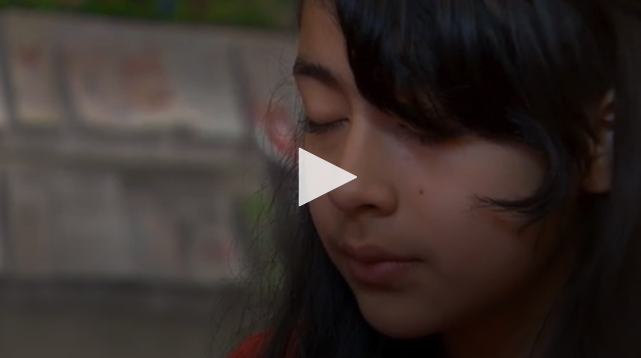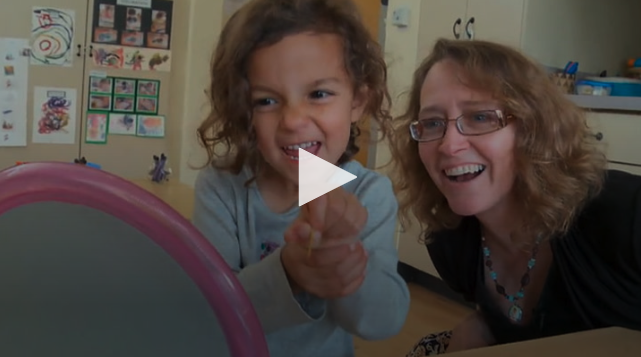I just watched a television commercial advertising “Back to School” sales. Could it be? Is it already time to wrap up summer and begin planning for the school year that’s looming on the horizon?
As I contemplated the notion of an imminent end to unplanned summer outings and my wanderlust approach to each day, I noticed the leaves of the trees changing ever so slightly and took it as a sign. Indeed, it is time — not to fret with anxiety about what’s to come, but to embrace the challenge of building stress resilience activities into my routine now.
Form follows function, or is it function follows form? Either way, it’s a better game plan to build a solid form during the last few weeks of summer vacation so that when stressful times arise (and they will arise), I’ll have my routines in place.
Based upon scientific research and the ground-breaking, Nobel Prize-winning work outlined in The Telomere Effect, here are 10 ways to bolster your fortitude for getting back into the groove and meeting the challenges of teaching throughout the year.
Authors Elizabeth Blackburn and Elissa Epel outline how we approach stress. If we can face stress with a challenge approach versus a threat response, our DNA will benefit significantly by increasing telomerase, which is an enzyme responsible for repairing our telomeres.
Telomeres are protective caps that contain genetic code on the ends of DNA strands. If telomeres get damaged and frayed, subsequent copies of DNA will be damaged. Thus, each cell will begin to age more quickly. I’m simplifying this greatly, so I encourage you to order the book to learn more. But in the meantime, here are a few quick tips to get you started:
- Wake up with joy. When you open your eyes in the morning, don’t immediately reach for your phone. Don’t anticipate your looming list of things to do with dread. Instead, try thinking about the gift you’ve been given – a chance to start fresh and seize a new day! Choose optimism and set your intention. What are you going to accomplish on this day?
Take a tip from the fourteenth Dalai Lama:
Every day, think as you wake up, today I am fortunate to be alive, I have a precious human life, I am not going to waste it.
~ Dalai Lama - Eat. Choose whole grains, fruits, and veggies. Think about how each thing you eat nourishes each cell in your body. Antioxidants, vitamins, and minerals will replenish you and sustain you with the energy you need to do your very important work — teaching and leading children. Learn about mindful eating and engage every sense. Smell your food, taste it in your mouth, and plan for a healthy afternoon snack for that staff meeting so you can avoid a sugar crash later. Say no to unhealthy snacks and ask for others to respect your wishes for self-care.
- Learn about QiGong. QiGong is an ancient Chinese practice called a movement meditation. It’s been around for over 4,000 years and the great part is that it’s on YouTube. I like YoQi, a free beginner’s Qigong that reduces depression and may improve diabetes, but also increases your vitality. Move the mind into the body, feel the energy (chi/Qi) tingle through your extremities with easy movements, and feel a sense of calm within five minutes. Qigong invokes relaxation through the awakening of the parasympathetic nervous system, creating blood flow and the exchange of gases in our cells.
- Think about your relationships. Who are the colleagues that can cultivate your personal power of positivity? Avoid negative, toxic people. People who have positive relationships and feel supported by a group have better health, in contrast to those who feel isolated and are more likely to die earlier. Consider social media. Is it helpful in supporting your relationships or is it causing you to feel socially isolated? Do you have at least one friend that you can confide in and feel mutual respect, support, and love when you’re together?
- Breathe. Practice mindfulness strategies using meditation and simple, brief moments of awareness throughout your day. Stay in the present and count your breath as you drive to work, walk your dog, take a shower, and prepare that lesson plan. If you’ve never counted your breath before and want to try, begin by inhaling to the count of seven and exhaling to the count of 11. If you can’t do it now, try again and again until you can. It takes time and patience to stop the mind from wandering and focus on the breath. There are several great apps that can help you train your mind, such as Headspace.
VIDEO: Mindfulness in the Classroom
- Be aware. Pay attention throughout your day. Be mindful of your experiences, thoughts, and feelings. If you’re feeling preoccupied with something, ask yourself, “Will this bother me 10 years from now?” This simplified distancing technique is outlined in detail in The Telomere Effect and is beneficial to retraining the cognitive mind and building new neural pathways so you can respond (not react) to stress in a more powerful way. Rumination is a dangerous thought pattern in which we think about the past or future and neglect what’s happening in the present. Train your mind to stay in the present and avoid ruminating thoughts.
VIDEO: Building Emotional Literacy
- Exercise. Plan for 40 minutes at least three times a week. Balance out aerobic and interval training by doing a little bit of cardio for 15 minutes, walking for five, and then back at it again for another 15 minutes, and so forth. If it’s been a long and grueling day in the classroom, take it easy on yourself and go for a walk. Find a way to connect with nature and practice mindfulness. Take advantage of your natural interests, such as dancing or playing an instrument. Try weaving your favorite hobby into your weekly schedule.
- Practice gratitude. Each day, at the end of your day, think about one thing that made you happy and write it in a journal. Spend $20 on a Happiness Journal and learn about the surprising science of happiness. It’s remarkable how little effort it takes to cultivate a happier life and the simple routines proven to rewire the brain. The neuroplasticity of the brain allows for us to rewire our thinking. If you’re a science junkie like me, learn more by watching Dan Gilbert’s TED Talk about happiness.
- Create your very own sleep ritual. Plan on going to sleep at the same time each night (even on the weekends). Reserve one hour without screens before your planned sleep time. Avoid caffeine in the afternoon and create a cool and dark bedroom that’s relaxing and uncluttered. I like to use earplugs and an eye mask to signal my nervous system that it’s time to power down. You’ll discover what works best for you, but whatever it is… stick with it! If you suffer from recurring thoughts about what to do tomorrow, try a body scan meditation to develop an awareness of your body and the parts of your body that might be holding on to residual stress from the day.
- Practice self-compassion and self-care. You work hard. And now you’re going from not teaching during summertime to teaching either full or part time, and balancing it all. You’re not alone; there are thousands of other teachers around the world who are experiencing the same challenges. It won’t be perfect and that’s okay. Be comfortable with imperfection. Love yourself and be kind to yourself. When you care for a child, friend, or a pet, your brain releases a chemical called oxytocin. This chemical feels good and your brain experiences euphoria. Train your mind to turn that feeling of compassion towards yourself. Laugh at your mistakes and know that you’ll do better the next time by being thoughtful and intentional in your actions. Be kind to others and send loving kindness to the people around you.
Have a great school year and enjoy taking some time to build your very own stress resilience action plan. Your students will benefit, your relationships will be strengthened, and your ability to respond to stress will help with teacher wellness all year long.
You define your success. What will your success look like in 2018-2019? How will you respond to stress?









